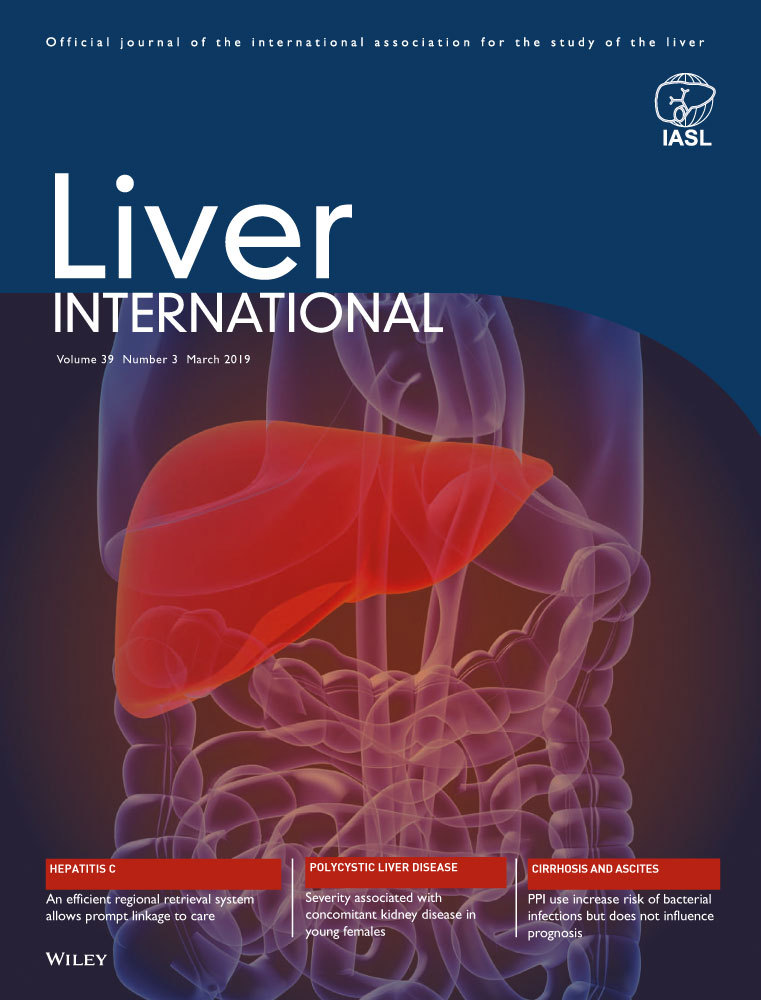REtrieval And cure of Chronic Hepatitis C (REACH): Results of micro-elimination in the Utrecht province
Funding information
This project was financially supported through unrestricted grants from Gilead, MSD, AbbVie and BMS.
Abstract
Background
The Netherlands is one of the six European countries considered on track to eliminate hepatitis C virus by 2030. To achieve this goal, continuous efforts have to be put into designing efficient case-finding strategies, including the retrieval of previously diagnosed hepatitis C virus-infected who are lost to follow-up.
Aims
To trace and treat all lost to follow-up hepatitis C virus patients in the Utrecht region and create an efficient retrieval strategy that can be used in future (national) retrieval initiatives.
Methods
Positive hepatitis C virus diagnostic tests (anti-hepatitis C virus IgG or hepatitis C virus-RNA) from the laboratory of all four hospitals and one central laboratory for primary care diagnostics in the province of Utrecht from 2001 to 2015 were linked to clinical records. Untreated patients with available contact information were deemed eligible for retrieval and invited for reevaluation with (virology) blood tests, fibroscan measurement and possible direct-acting antiviral therapy.
Main results
After screening all hepatitis C virus diagnostics, 1913 chronic hepatitis C virus-infected were identified of which 14.1% (n = 269) were invited back into care. Overall, 17.4% was traced with the highest yield (28.3%) in those who lived in the Utrecht province. Through renewed patient assessments, 42 chronic hepatitis C virus infections were re-identified (76% with a history of intravenous drug use, 24% with Metavir F3-F4). Until now, 59% has either scheduled or initiated direct-acting antiviral therapy.
Conclusion
The retrieval of previously diagnosed hepatitis C virus patients through screening of laboratory diagnostics from the past is feasible and should be pursued for further control and reduction of hepatitis C virus infection. Retrieval is most successful when performed regionally.
Lay summary
To completely eliminate chronic hepatitis C virus (HCV) infection and prevent complications, undiagnosed and also previously diagnosed but lost to follow-up (LFU) HCV patients have to be brought (back) into care for therapy. Retrieval of LFU HCV patients through screening of laboratory diagnostics from the past is feasible and most successful when performed regionally.
CONFLICT OF INTEREST
Dr Arends reports personal fees from Abbvie, BMS, Gilead, Janssen, MSD and ViiV and research grants from Abbvie and BMS, outside the submitted work. Dr van Erpecum reports personal fees from Abbvie, BMS, Gilead and Janssen-Cilag and research grants from Abbvie, Gilead and Janssen-Cilag, outside the submitted work. Dr Boland is Chairman of the Hepatitis Information Foundation, which is supported by AbbVie, Gilead, BMS and GlaxoSmith Kline. Fees go to the department of Medical Microbiology, UMC Utrecht. Dr Hoepelman reports personal fees from Abbvie, BMS, Gilead and Janssen. All other authors declare that they have no competing interest with respect to the presented work.




